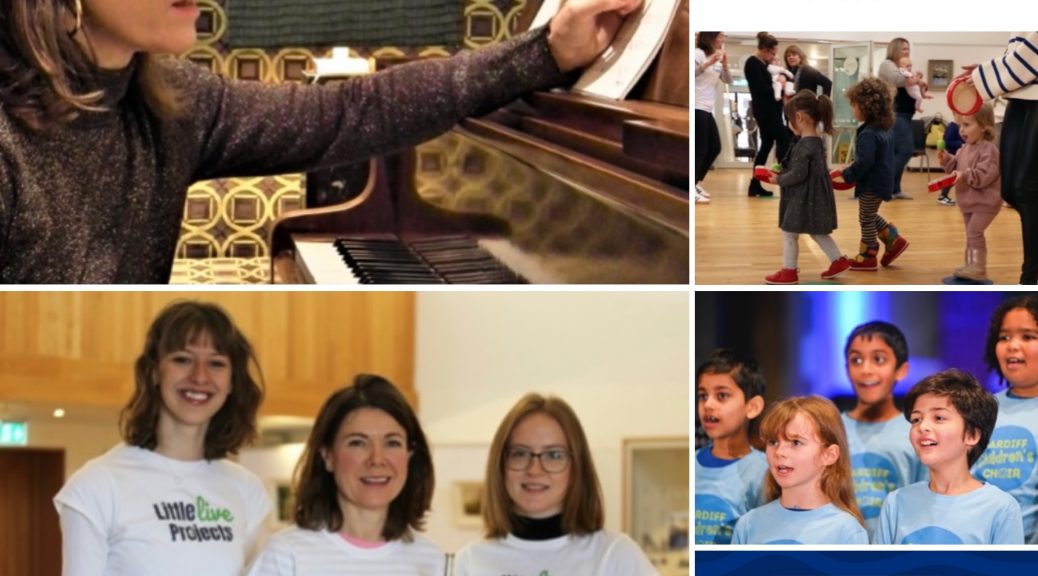Hi Julia, great to meet you. You have a background in music and education, can you give our readers some background information on your career to date?
Straight out of Music College (RCM) I worked principally in the world of orchestral bassoon playing, freelancing with the BBC Symphony, BBC Scottish and also specialising as a baroque and classical bassoonist. I performed, recorded and toured internationally with ensembles such as The Academy of Ancient Music and the Orchestra of the Age of Enlightenment. Alongside playing, I’ve been composing since I was a child. I write wide ranging music from orchestral to solo instrumental works, from opera to songs for children. I loved my own childhood music experiences and have been teaching music since I was a teenager. Creating Kodaly and Dalcroze inspired learning flows for groups of children is a particular passion. I enjoyed wonderful years as Head of Primary Music at Llandaff Cathedral School before moving to the RWCMD firstly for an M.Mus in Composition and then as a tutor for baroque bassoon and early years pedagogy.
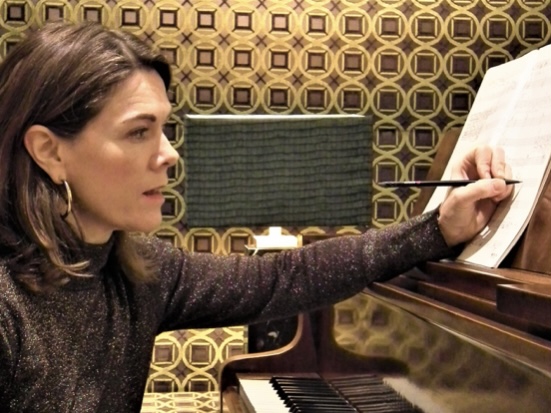
So, what got you interested in the arts?
I had an inspirational class music teacher in my Primary School years. She introduced us to recorders, singing, tuned and untuned percussion. I remember enjoying the lessons and putting on fun concerts and productions. My parents were also very supportive in organising piano and ballet lessons and making sure we did our music practice.
What importance does music have in your life and how have you combined the two areas of music and education in your professional career?
Music gives me great joy as a performer, composer, worshipper, listener and educator. From the synergy of being in a high functioning orchestral wind section to the joy of engaging babies and toddlers in perfectly age-appropriate songs and games – the ability of music to open doors into the transcendent is extraordinary.
Music education has interweaved with performing and composing right across my career, often intermingling. It feels rather like cooking to me. You have a room of “ingredients” people/instruments/voices/music and you work deftly with what you’ve got to create a delicious meal that everyone enjoys. It’s about creating the optimum environment to bring out the best in each person’s unique flavour.
I resonate with strongly with Zoltan Kodaly’s maxim:
“Tell me, I forget. Show me, I remember. Involve me, I understand”.
You are delivering two different music activities as part of a RWCMD Music Residency at Penarth Pier Pavilion, as part of a new partnership with the Vale of Glamorgan Council. A one-year pilot has been agreed that will see the college run parent and toddler music sessions, base a small ensemble at the pavilion and put on Dance Band evenings for the local community. The parent and toddler music sessions will be run by yourself, Julia Plaut, a composer who served for many years as Head of Primary Music at Llandaff Cathedral School, and take two forms – Morning Mini Music and Little Concerts. Running on a weekday morning in the pavilion gallery, Morning Mini Music sessions are focused on music and movement that help children with interaction and socialisation. Little Concerts will be weekend afternoon music events for families, specifically designed for the under-5s, that feature new works from RWCMD composers”
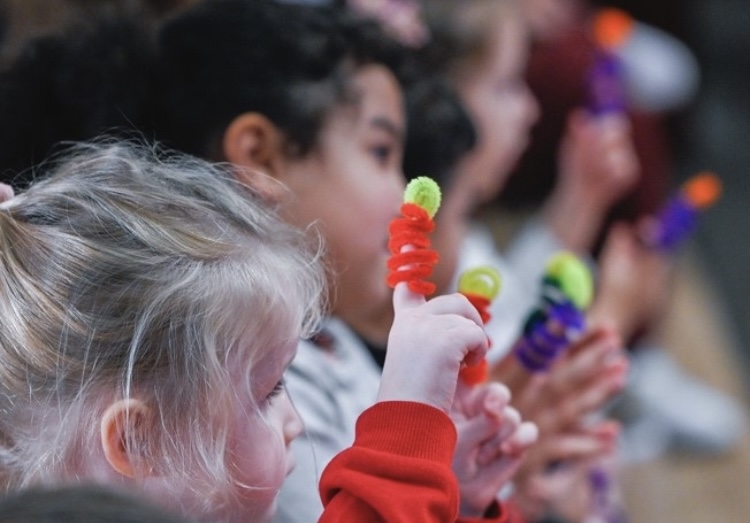
How did you come to be involved in this project and what are your ambitions for its delivery?
Part of my work at the RWCMD is mentoring selected students in early years pedagogy. This project gives industry-facing experience to these students under the umbrella of an expert practitioner. My ambition is that we deliver high quality musical experiences for Penarth children and their families that create a real buzz locally while providing sector leading training for RWCMD students. You can find out more about the project and book tickets here
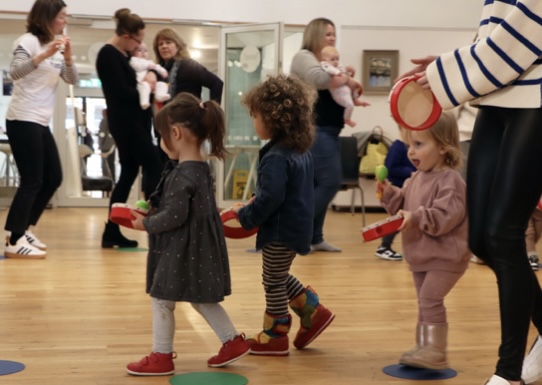
You are the Artistic Director of Little Live Projects, this charity works to “inspire young people to flourish through sharing excellent musical experiences with professional musicians” How do you deliver this work?
Little Live Projects has two strands. One is the Little Concerts series of joyful interactive chamber music events presented in partnership with the RWCMD. The other is the Cardiff Children’s Choir, an after-school community choir for children aged 5-11 years based at Urban Crofters near City Road in Cardiff. The choir welcomes all local children and particularly those from displaced families or who are facing barriers of any kind.
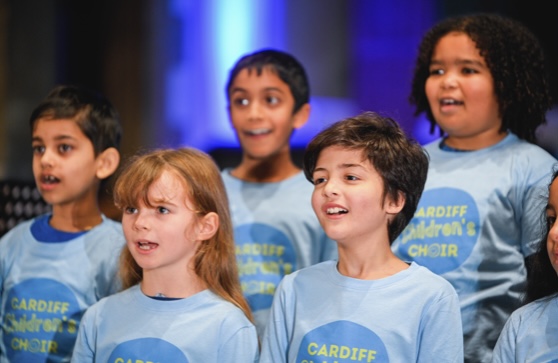
You have close links with The Royal Welsh College of Music and Drama in Cardiff, how did this relationship develop?
Quite a few of the RWCMD staff team have been professional colleagues over the years. I’m a tutor for baroque bassoon and early years pedagogy there. I formally pitched the Little Live Projects vision as part of my M.Mus studies. The RWCMD and Little Live Projects share a strong synergy of vision for future focussed training with outstanding student experience delivered by world-class staff in providing transformative experiences for diverse communities.
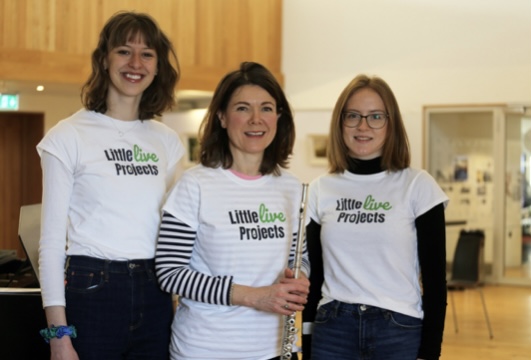
Funding for musical provision is increasingly being cut for young people, can you see the impact on young peoples lives and possible career paths as professional musicians as a consequence?
Good quality instrumental music tuition is a very expensive to fund, and importantly, to sustain over long enough to allow children to become accomplished enough to consider a career in music. El Sistema style initiatives like Making Music Changing Lives in Cardiff are doing brilliant work to address this deficit. I have questions about the usefulness of the large group instrumental teaching that takes place in schools which only gives a cursory taste, often on poor quality instruments and without the formation of basic good technique. I am however excited by the potential for choral singing to provide a quicker route into embodied musical understanding and real accomplishment. It works brilliantly in large groups and embeds aural and other transferable skills that children could then take into learning an instrument.
If you were able to fund an area of the arts what would this be and why?
I would fund an expert Kodaly practitioner to lead singing in every primary school in Wales one day a week. Each child has a singing voice that can be nurtured, giving them a worthwhile means of self-expression. Through singing together children develop the intimate knowledge of a social togetherness in which discipline and order prevail. Not only would these practitioners lead and embed singing but, in doing so, they would be providing continuing professional development for staff to carry on the singing confidently during the rest of the week.
What currently inspires you about the arts in the Wales?
I am inspired and encouraged by the way Ty Cerdd are championing Welsh composers and creators across a broad range of styles. I also gain a lot as a member of Anthem’s Atsain Network. Hearing nuts and bolts stories from other community music practitioners from around Wales gives me loads of inspirational ideas.


What was the last really great arts event that you experienced that you would like to share with our readers?
Recently I attended a fabulous concert by Genesis Sixteen and Harry Christophers singing Handel’s Dixit Dominus at RWCMD. The musical excellence and vibrant energy that was released through seasoned professionals mentoring young singers, conductors, instrumentalists and soloists (aged 18-23) was breath-taking. It made my heart sing to see the cascading of good things into the next generation of musicians.
Thanks for your time.

